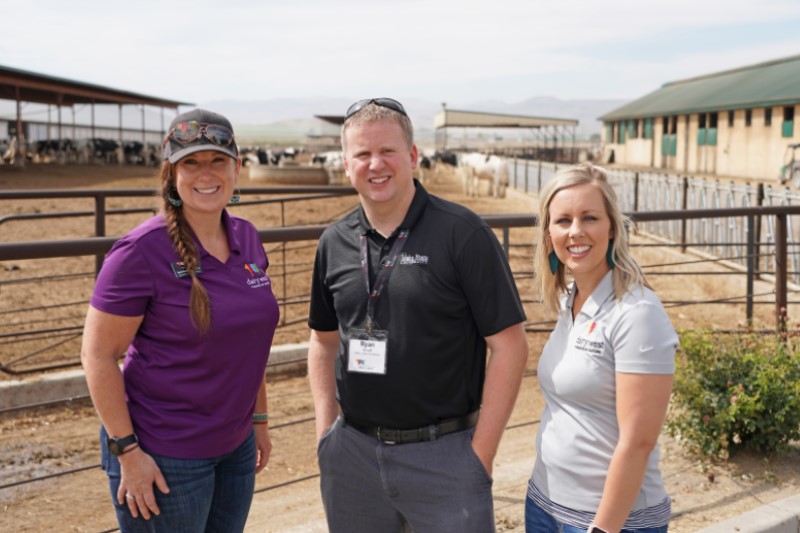Winning Habits | Strength Crushers | Smart Cooking | SCORE Team | Healthy Connections | Fueling Greatness
Zen and the Art of Cheese Making
August 2019
By Ryan Gerulf, MA
Director of Development, Kasiska Division of Health Sciences
In July of this year, I had the opportunity to go on a dairy tour with Dairy West to learn more about dairy production and how milk gets made into cheese. We visited the Nederend Dairy in Marsing to see how a modern dairy operates, as they are one of about 450 milk producers in Idaho. Most of the producers are family owned and operated like the Nederend Dairy. The Nederends opened up their operation for us to explore.

One of the things that stood out was the stress-free environment they create for their cows. Their operation runs on a tight schedule with no more than 15 minutes aberrations, as keeping cows on a routine schedule reduces their stress. These cows also have nutrition that goes beyond just simply eating alfalfa hay. In addition to the hay, the cows are fed a variety of other nutrients that include corn silage, barley, and soybeans to keep them healthy. Their food rations are calculated much like a dietitian might create a nutrition schedule for a patient, but on a much larger scale.
The reason to keep the cows healthy and stress-free is that it reduces the somatic cell counts that are found in the milk. This is important because high somatic cell counts alter the flavor of milk. I noticed this correlation because when touring Lactalis in Nampa later in the day, their cheesemaker mentioned that having cows with low stress is imperative to making good cheese. If the somatic cell counts get too high, the product isn’t usable. The cheesemaker also mentioned that the clean operations that she’s seen in Idaho make her job much easier, as when she worked in Europe the milk coming into the facility was much dirtier. Throughout the day there was a strong focus on having clean facilities, testing the milk and cheese for any abnormalities, and starting the process with low-stress cows on a balanced diet to create our milk and cheese.
Note from SCORE Sports Nutritionist, Natalie Christensen, RDN, LD, CSSD: We regularly stock the ISU fueling stations with cheese sticks. These and other cheese products are great sources of protein, which can help collegiate athletes repair muscles.

